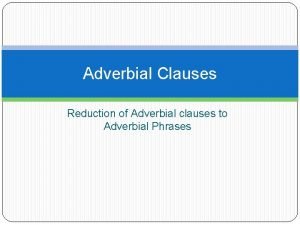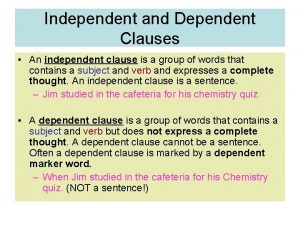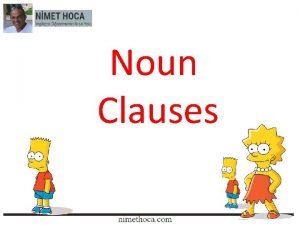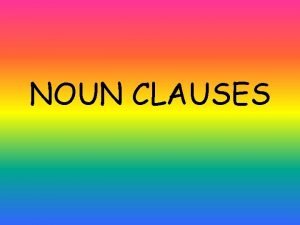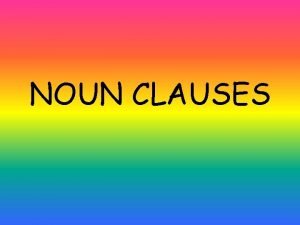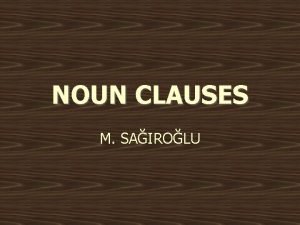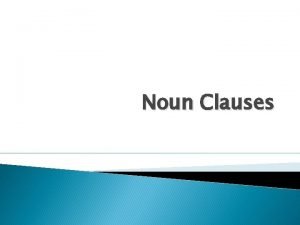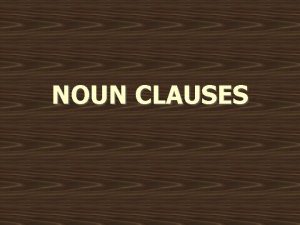Noun Clauses Uses for Noun Clauses You have









- Slides: 9

Noun Clauses

Uses for Noun Clauses You have studied adjective clauses and adverb clauses. Another kind of clause is the noun clause. n A noun clause is a subordinate clause that functions as a noun. n You can use a noun clause in all the ways you can use nouns. n

Words that introduce noun clauses. How What Where If Whatever Wherever Whichever That When Whether Which whoever Whomever Who, whom why

Noun clauses can be used as the following: Subject What he said was clear. Direct object I don’t know he can be reached. Give whoever answers the message. I sent the notice to whoever was interested. That is what I intend. Indirect object Object of a preposition Predicate noun

Identify each noun clause. Is it used as a subject, a direct object, an indirect object, an object of a preposition, or a predicate noun? 1. 2. 3. 4. 5. You know that the telephone uses electricity. What you say into a phone creates sound waves. An electric current carries the sound to whoever is listening. Basically, this is how a telephone operates. You can talk to whomever you like and say whatever you think.

Noun clauses with who and whom To decide whether to use who or whom in a noun clause, first decide how the relative pronoun functions within the clause. n Use who or whoever as the subject of a verb within a noun clause. n – Who is calling is not clear. – Whoever calls can talk to me.

Noun clauses with who and whom n Use whom or whomever as the object of a verb or the object of a preposition that is within a noun clause. – Whom you meant is not clear. (You meant whom) – I’ll give the message to whomever it was meant for. (It was meant for whomever

Identify the noun clause in each sentence. Which relative pronoun is correct? n n n n 6. Tell me (who, whom) is likely to run for that office. 7. (Whoever, Whomever) they nominate will probably accept. 8. I will vote for (whoever, whomever) will do the best job. 9. The candidate chosen was exactly (who, whom) you predicted. 10. The results of the election show (who, whom) the voters regarded as the most capable candidate. 11. Give my congratulations to (whoever, whomever) chose her. 12. I want to thank (whoever, whomever) was the campaign manager.

Write each noun clause. Label it subject, direct object, indirect object, object of a preposition, or predicate noun. n n n n 13. Campaign workers use whatever helps them. 14. That telephones can be very helpful has been shown in many elections. 15. Who will win the election is what people want to know. 16. Telephoners ask whoever answers a series of questions. 17. Whether a candidate is popular is a vital matter. 18. Another question may be what the major issues are. 19. Voters usually give whoever is calling an answer.




